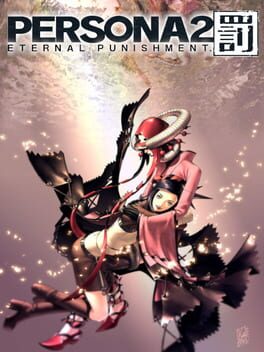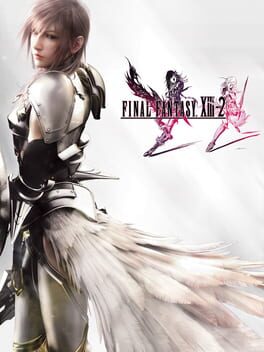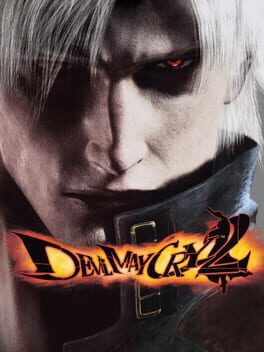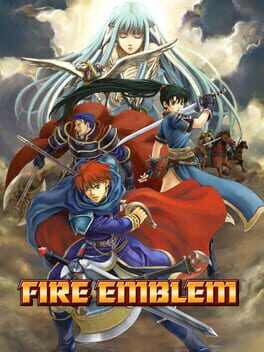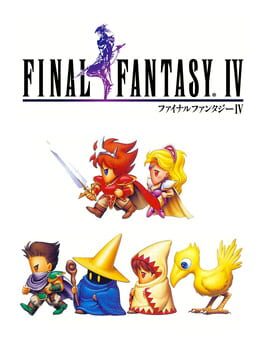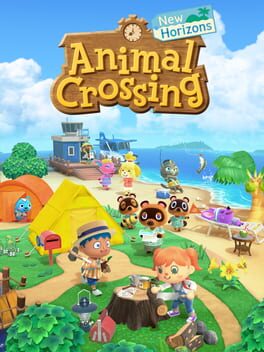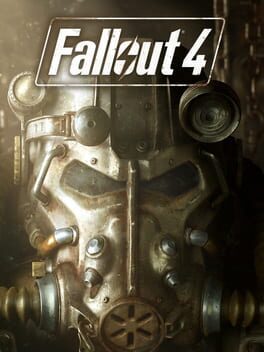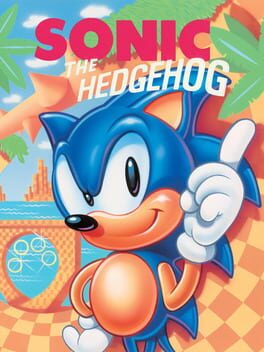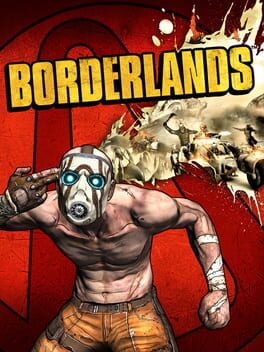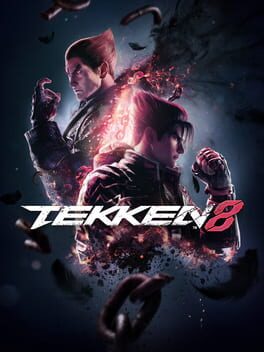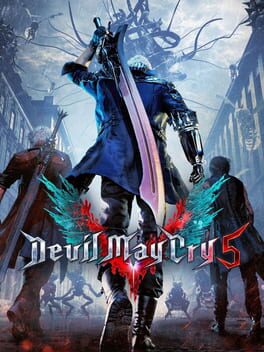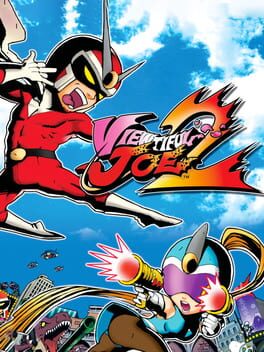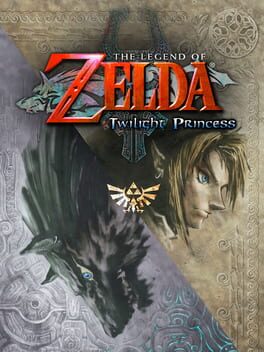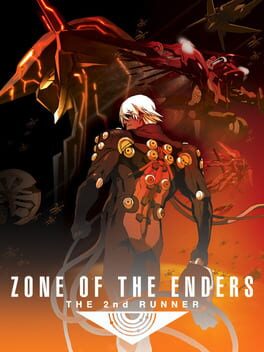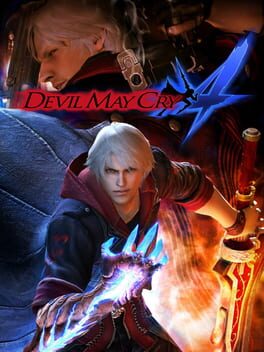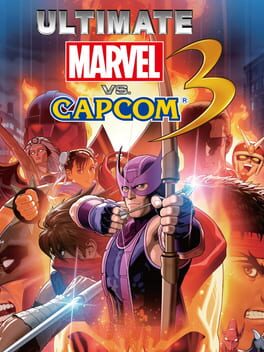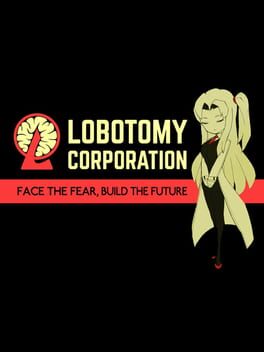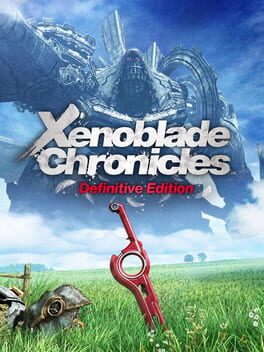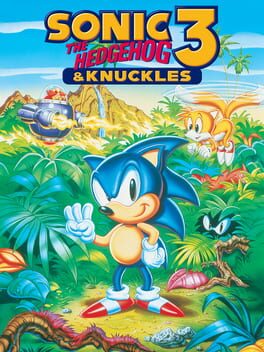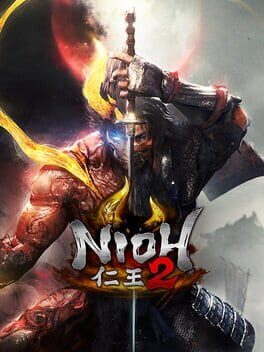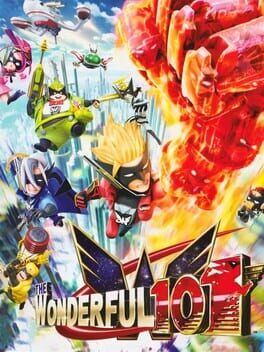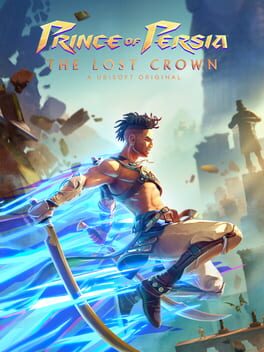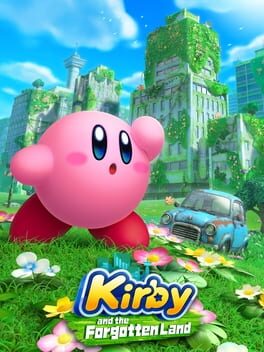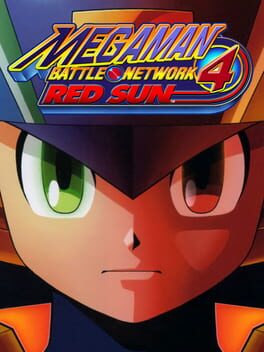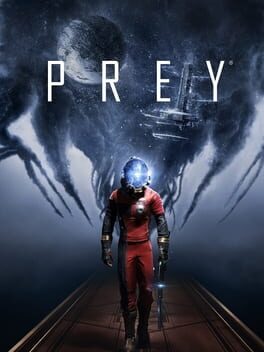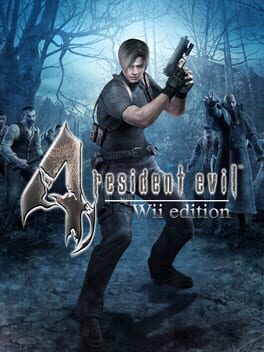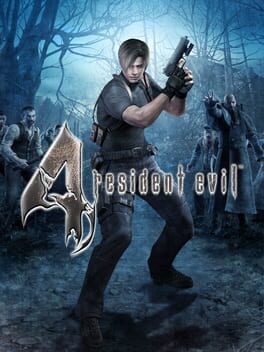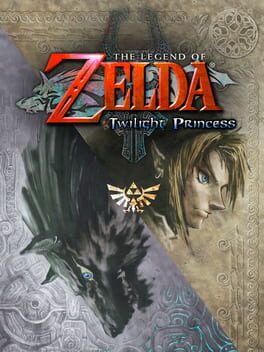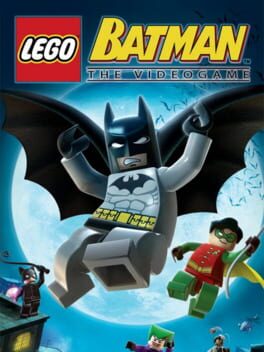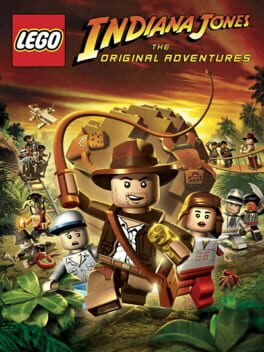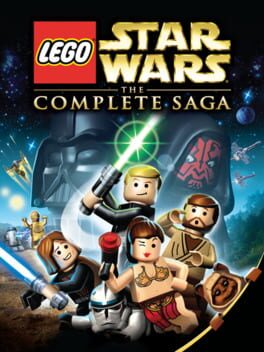XON
93 reviews liked by XON
the internet was a paradigm shift, wasn't it? since the late 90s we've seen an increasing amount of discussion around fact and fiction becoming muddied, with the distinction seemingly being irrelevant to many. information is as free as it gets, but the direct consequences for misinformation are minimal. of course, there's no end of works focusing on the subject of truth in the information age; in this very medium you have one of the most prescient and unique statements on the matter with MGS2. the persona 2 duology, however, is unique in that a lot of what it has to say feels before it's time. this is certainly an internet-age set of games, but calling them cyberpunk in any way would be a misnomer. persona 2 really is concerned about the broader societal implications that come about from people being willing and able to believe almost anything, and it directs that focus towards the physical world. in a lot of ways, P2 feels responsive towards the increasing prevalence of conspiracy theories in pop culture (a lot of popular conspiracies are even used as inspiration for plot beats in innocent sin), and i think P2 takes a unique stance in that they don't flat out deny that these things are worth believing in or looking into. rumors come to life, but rumors do have to start from somewhere; there's shreds of truth in any lie.
P2, and especially EP, puts a ton of emphasis on allowing the city to feel lived-in and breathing. for anything you do, there's new dialogue everywhere, and the main progression gimmick (rumors coming to life at the player's will) is utilized in a lot of clever ways to achieve that goal. persona games are known for being text-heavy in general, but i wouldn't be surprised if these two games had some of the larger scripts in the franchise, because every story moment basically changes the whole city. in a game all about listening to the pulse of the city, this feels very appropriate, creating a much stronger sense of immersion than you'd expect for a game like this.
now for stuff focused solely on EP:
out of all of the traditional storytelling archetypes, probably the most common for a JRPG to use is the coming of age story. this makes a lot of sense, logistically; most video game consumers are teenaged, most JRPG protagonists are teenaged, and the power fantasy typically inherent to the genre is about starting from a weak position and growing to be strong. eternal punishment doesn't have these sorts of goals, and it's a lot more engaging for it. EP's cast is a group of adults, and you'd be forgiven for thinking at the beginning of the game that this cast doesn't have much room to grow. indeed, EP's characters definitely do not "grow up" in the way typical for JRPG writing; these characters start out pretty divided and uncomfortable with each other, but there isn't a big climax where they confront their fears all at once and become a team. instead, EP uses optional dialogue to subtly paint a portrait of each of it's cast members and has them slowly begin to open up over time. it's rewarding and immersive to have these characters actually gain new contacts due to these little nuggets of development, and it's a much more lifelike approach to party development than you see in more traditional narratives. a key concept this game has about identity is that it's self-determined; people aren't simply on a search to discover how they really are, but are ever-changing and create the path they walk. i think integrating this into the story by making much of the development up to the player is exceptionally clever. it's a fairly common statement among writers attempting subversive character writing to say that human beings don't have arcs. i feel that this is often used to justify uninteresting or directionless character writing, but in EP it feels like a pretty considered thesis for the game's writing. i guess a better way of saying it is that people don't just have arcs, they don't grow up at one specific point. development here is more like a stream, ebbing and flowing.
STORY SPOILERS HERE
all that being said, eternal punishment was greenlit for a very specific reason; to give an alternate perspective to tatsuya. i also felt that this was done quite well. tatsuya was about as well-characterized as a silent protagonist could get in IS, i felt, but getting a voice definitely helps him. his self-imposed suicide mission is a great narrative hook, and the reasoning behind his existential guilt is one of the best reveals of the story. tatsuya commits (yet another) innocent sin by refusing to forget his friends again, and it's not surprising that he'd try to shoulder the burden to protect their reality. tatsuya is ultimately a character whose greatest weakness is his protective instinct, but through the comfort of the main cast he's able to get past that and use his sins as blessings. it's beautiful payoff for a story that's rife with personal loss and seemingly hopeless odds.
in a lot of ways, P2 reminds me of panzer dragoon saga. both are these hugely ambitious games from around the same time that are driven by the urge to do something different. when i played innocent sin, i felt that that game's attempts at novelty wore thin; the character writing didn't feel dense, the combat was far too easy, and the deviations from standards felt poorly justified by the narrative. although there are still things i dislike in EP, the overall package feels more cohesive. rumors are more immersive and offer more variety, character dialogue is more interesting, the combat and character progression is more difficult but offers more interesting decisionmaking. definitely a huge improvement.
P2, and especially EP, puts a ton of emphasis on allowing the city to feel lived-in and breathing. for anything you do, there's new dialogue everywhere, and the main progression gimmick (rumors coming to life at the player's will) is utilized in a lot of clever ways to achieve that goal. persona games are known for being text-heavy in general, but i wouldn't be surprised if these two games had some of the larger scripts in the franchise, because every story moment basically changes the whole city. in a game all about listening to the pulse of the city, this feels very appropriate, creating a much stronger sense of immersion than you'd expect for a game like this.
now for stuff focused solely on EP:
out of all of the traditional storytelling archetypes, probably the most common for a JRPG to use is the coming of age story. this makes a lot of sense, logistically; most video game consumers are teenaged, most JRPG protagonists are teenaged, and the power fantasy typically inherent to the genre is about starting from a weak position and growing to be strong. eternal punishment doesn't have these sorts of goals, and it's a lot more engaging for it. EP's cast is a group of adults, and you'd be forgiven for thinking at the beginning of the game that this cast doesn't have much room to grow. indeed, EP's characters definitely do not "grow up" in the way typical for JRPG writing; these characters start out pretty divided and uncomfortable with each other, but there isn't a big climax where they confront their fears all at once and become a team. instead, EP uses optional dialogue to subtly paint a portrait of each of it's cast members and has them slowly begin to open up over time. it's rewarding and immersive to have these characters actually gain new contacts due to these little nuggets of development, and it's a much more lifelike approach to party development than you see in more traditional narratives. a key concept this game has about identity is that it's self-determined; people aren't simply on a search to discover how they really are, but are ever-changing and create the path they walk. i think integrating this into the story by making much of the development up to the player is exceptionally clever. it's a fairly common statement among writers attempting subversive character writing to say that human beings don't have arcs. i feel that this is often used to justify uninteresting or directionless character writing, but in EP it feels like a pretty considered thesis for the game's writing. i guess a better way of saying it is that people don't just have arcs, they don't grow up at one specific point. development here is more like a stream, ebbing and flowing.
STORY SPOILERS HERE
all that being said, eternal punishment was greenlit for a very specific reason; to give an alternate perspective to tatsuya. i also felt that this was done quite well. tatsuya was about as well-characterized as a silent protagonist could get in IS, i felt, but getting a voice definitely helps him. his self-imposed suicide mission is a great narrative hook, and the reasoning behind his existential guilt is one of the best reveals of the story. tatsuya commits (yet another) innocent sin by refusing to forget his friends again, and it's not surprising that he'd try to shoulder the burden to protect their reality. tatsuya is ultimately a character whose greatest weakness is his protective instinct, but through the comfort of the main cast he's able to get past that and use his sins as blessings. it's beautiful payoff for a story that's rife with personal loss and seemingly hopeless odds.
in a lot of ways, P2 reminds me of panzer dragoon saga. both are these hugely ambitious games from around the same time that are driven by the urge to do something different. when i played innocent sin, i felt that that game's attempts at novelty wore thin; the character writing didn't feel dense, the combat was far too easy, and the deviations from standards felt poorly justified by the narrative. although there are still things i dislike in EP, the overall package feels more cohesive. rumors are more immersive and offer more variety, character dialogue is more interesting, the combat and character progression is more difficult but offers more interesting decisionmaking. definitely a huge improvement.
Final Fantasy XIII-2
2011
for a long time, final fantasy was a franchise that didn't really have sequels. it was a franchise where each installment did something different, not as a correction to the prior game, but as a way to push the identity of the franchise further and try to show off what it could be in a different light. this changed with ffx-2, a game which i haven't played (yet). something notable about ffx-2 is that it was following up on one of the most critically acclaimed installments in the history of the franchise. the staff for it went in a radically different direction compared to ffx, because they wanted to keep the franchises' spirit of change and make it clear that they were still trying to take risks. what if ffx had been widely disliked? what if the key staff were concerned with change because they felt it was necessary to regain respect? well, a game like ffxiii-2 would probably happen.
xiii-2 is a game that feels insecure with it's existence. the staff for it clearly understood that for a lot of franchise veterans, xiii was not what they wanted. people didn't like how xiii's narrative was centered around developing a cast that started as extremely flawed characters, so now we've scaled back the cast and both of the main characters are generally likable from the get-go. people didn't like how linear the progression was in xiii, so now we've split the game into like 20 zones that you can choose to tackle in a variety of orders. people didn't like how xiii didn't have a lot of variety outside of combat, so we have puzzles. by GOD we have puzzles. the problem with xiii-2 is that they've followed the criticism based solely on what players directly said, rather than what they meant. sure, these zones are less linear, but they feel even more artificially restrictive than the zones in xiii, because the constant asset reusage means they have to put literal floating walls up to keep you out of certain areas. this zone reusage is a big problem in general, as it leads to a lot of what feels like backtracking, and it rarely if ever connects to the narrative. there's technically more reason to explore than you had in xiii, but it's not because the environments make you want to explore them, it's because they just put invisible collectables everywhere. the new main characters are less immediately flawed, but they have so little in the way of characterization that they feel dull. a lot of the complaints xiii got for it's cast can be chalked up in the first place to it's understated character writing, which slowly built towards an explosive conclusion for each of the characters. here, this is exaggerated to the maximum, with both serah and noel starting out as likable characters, getting little to no development over the next 20 hours, then speedrunning an arc in 30 minutes. the fact that there's more to do in theory here means little because the side content is a handful of casino games and puzzles that oscillate between being incredibly obnoxious and incredibly simple. the new, customizable monster system is very cute and seems like a cool idea, but to accommodate it the difficulty has been massively lowered across the board, meaning one of the biggest strengths of xiii (it's action-packed, fast-paced and nuanced combat system) has been neutered. i didn't feel that xiii was especially flawed to begin with, but the "fixes" here only serve to emphasize the issues present in that game. this isn't to say all the changes are universally bad; there are some nice quality of life changes to the combat. i appreciate that paradigm shifts no longer stop combat for the first animation, i like that you can now swap party leaders, and allowing the player to unlock whatever paradigms they feel like as they progress through the crystarium is a nice middle-ground between the controlled progress in xiii and something like the expert sphere grid. unfortunately, as i mentioned earlier, the balancing of xiii-2 being very weighted on the easy side means that these things don't get to shine as much as i'd like, but they are still nice changes and i appreciate what they were going for.
SPOILER TALK BEGINS HERE
the story in ffxiii-2 may be the most disappointing in the franchise. it has a strong concept that it feels violently opposed to doing anything with. i would LOVE a final fantasy game about time travel, but xiii-2's time travel mechanics follow no internal logic, and feel like an extended excuse to reuse zones and integrate cut content from xiii. the episodic structure the game gets from the time travel focus is a great idea in theory, but in practice it means that character development and plot progression is minimized, creating extremely lopsided pacing and no real plot. for the first 20 hours of the game, i was totally lost as to what anyone could see in this story, because many of the zones do not have any narrative conclusion. it's also very disappointing that, considering xiii didn't give much immediate background to it's world, we never get to time travel to a point before that game's ending. it would have been great worldbuilding to do quests in cocoon during peace-time, or to interact with the gran pulse tribes fang and vanille came from, but instead we're given a few zones that get repeated and the repetitions mostly have pretty similar storylines. when the time travel is integrated more solidly into the plot, it still fails to follow any logic. why can i erase a monster that creates the circumstances for a timeline's existence, and then still return to that timeline whenever i want? how can i "save the future" but the bad ending still persists like a wart? so much of the runtime is spent talking about these narrative mechanics, but none of that time is valuable because the narrative mechanics are complete and utter nonsense. it's not like FF8 or FF10, where there's some stuff that is logically questionable but the plot glosses it over, the entire plot hinges on a system that feels like an afterthought. caius is often brought up as a strength of this game's story, and yes, he's a cool antagonist with a strong presence, but his motivation is also nonsense; caius is motivated by the fact that history changing will inevitably kill yeul, a little girl who is reincarnated for reasons the plot doesn't care to get into. caius' solution to this is not to stand in the protagonist's way and try to correct the timeline that they alter, but rather to change the timeline even more, destroying the entire concept of history somehow, thereby allowing yeul to exist in eternity (if, you know, she didn't already die because literally all of time just got changed). forgiving the fact that this makes caius selfish in a way that is just utterly inhuman (it's not as though caius is in love with yeul, he's just given the duty of being her protector), caius' actions are essentially no different from the protagonists', which he explicitly disagrees with. when it comes to positives, noel is a pretty good character, and 700 AF: A Dying World is a great moment for the story, reminiscent of oerba from xiii. however, i can't act as though this moment was worth the strain it puts on the rest of the story. noel's backstory is very strong, but the story awkwardly sidesteps it for 20+ hours before we finally get there, both with frequent memory loss on noel's part and serah just... choosing not to ask questions? i feel like at that point we'd be better off making noel completely lose his memory at the start of the game, it feels so artificial to have him forget specifically the things that give context to the plot until the game is basically over. the ending is also emotionally pretty strong, though it's a very strange choice narratively because it means that the game disagrees with basically everything xiii had to say thematically... probably not what you want to do in a sequel, but considering the wealth of other ways this game feels reactionary to critique of xiii, i doubt that was an accident.
xiii-2 is a game that feels insecure with it's existence. the staff for it clearly understood that for a lot of franchise veterans, xiii was not what they wanted. people didn't like how xiii's narrative was centered around developing a cast that started as extremely flawed characters, so now we've scaled back the cast and both of the main characters are generally likable from the get-go. people didn't like how linear the progression was in xiii, so now we've split the game into like 20 zones that you can choose to tackle in a variety of orders. people didn't like how xiii didn't have a lot of variety outside of combat, so we have puzzles. by GOD we have puzzles. the problem with xiii-2 is that they've followed the criticism based solely on what players directly said, rather than what they meant. sure, these zones are less linear, but they feel even more artificially restrictive than the zones in xiii, because the constant asset reusage means they have to put literal floating walls up to keep you out of certain areas. this zone reusage is a big problem in general, as it leads to a lot of what feels like backtracking, and it rarely if ever connects to the narrative. there's technically more reason to explore than you had in xiii, but it's not because the environments make you want to explore them, it's because they just put invisible collectables everywhere. the new main characters are less immediately flawed, but they have so little in the way of characterization that they feel dull. a lot of the complaints xiii got for it's cast can be chalked up in the first place to it's understated character writing, which slowly built towards an explosive conclusion for each of the characters. here, this is exaggerated to the maximum, with both serah and noel starting out as likable characters, getting little to no development over the next 20 hours, then speedrunning an arc in 30 minutes. the fact that there's more to do in theory here means little because the side content is a handful of casino games and puzzles that oscillate between being incredibly obnoxious and incredibly simple. the new, customizable monster system is very cute and seems like a cool idea, but to accommodate it the difficulty has been massively lowered across the board, meaning one of the biggest strengths of xiii (it's action-packed, fast-paced and nuanced combat system) has been neutered. i didn't feel that xiii was especially flawed to begin with, but the "fixes" here only serve to emphasize the issues present in that game. this isn't to say all the changes are universally bad; there are some nice quality of life changes to the combat. i appreciate that paradigm shifts no longer stop combat for the first animation, i like that you can now swap party leaders, and allowing the player to unlock whatever paradigms they feel like as they progress through the crystarium is a nice middle-ground between the controlled progress in xiii and something like the expert sphere grid. unfortunately, as i mentioned earlier, the balancing of xiii-2 being very weighted on the easy side means that these things don't get to shine as much as i'd like, but they are still nice changes and i appreciate what they were going for.
SPOILER TALK BEGINS HERE
the story in ffxiii-2 may be the most disappointing in the franchise. it has a strong concept that it feels violently opposed to doing anything with. i would LOVE a final fantasy game about time travel, but xiii-2's time travel mechanics follow no internal logic, and feel like an extended excuse to reuse zones and integrate cut content from xiii. the episodic structure the game gets from the time travel focus is a great idea in theory, but in practice it means that character development and plot progression is minimized, creating extremely lopsided pacing and no real plot. for the first 20 hours of the game, i was totally lost as to what anyone could see in this story, because many of the zones do not have any narrative conclusion. it's also very disappointing that, considering xiii didn't give much immediate background to it's world, we never get to time travel to a point before that game's ending. it would have been great worldbuilding to do quests in cocoon during peace-time, or to interact with the gran pulse tribes fang and vanille came from, but instead we're given a few zones that get repeated and the repetitions mostly have pretty similar storylines. when the time travel is integrated more solidly into the plot, it still fails to follow any logic. why can i erase a monster that creates the circumstances for a timeline's existence, and then still return to that timeline whenever i want? how can i "save the future" but the bad ending still persists like a wart? so much of the runtime is spent talking about these narrative mechanics, but none of that time is valuable because the narrative mechanics are complete and utter nonsense. it's not like FF8 or FF10, where there's some stuff that is logically questionable but the plot glosses it over, the entire plot hinges on a system that feels like an afterthought. caius is often brought up as a strength of this game's story, and yes, he's a cool antagonist with a strong presence, but his motivation is also nonsense; caius is motivated by the fact that history changing will inevitably kill yeul, a little girl who is reincarnated for reasons the plot doesn't care to get into. caius' solution to this is not to stand in the protagonist's way and try to correct the timeline that they alter, but rather to change the timeline even more, destroying the entire concept of history somehow, thereby allowing yeul to exist in eternity (if, you know, she didn't already die because literally all of time just got changed). forgiving the fact that this makes caius selfish in a way that is just utterly inhuman (it's not as though caius is in love with yeul, he's just given the duty of being her protector), caius' actions are essentially no different from the protagonists', which he explicitly disagrees with. when it comes to positives, noel is a pretty good character, and 700 AF: A Dying World is a great moment for the story, reminiscent of oerba from xiii. however, i can't act as though this moment was worth the strain it puts on the rest of the story. noel's backstory is very strong, but the story awkwardly sidesteps it for 20+ hours before we finally get there, both with frequent memory loss on noel's part and serah just... choosing not to ask questions? i feel like at that point we'd be better off making noel completely lose his memory at the start of the game, it feels so artificial to have him forget specifically the things that give context to the plot until the game is basically over. the ending is also emotionally pretty strong, though it's a very strange choice narratively because it means that the game disagrees with basically everything xiii had to say thematically... probably not what you want to do in a sequel, but considering the wealth of other ways this game feels reactionary to critique of xiii, i doubt that was an accident.
Devil May Cry 2
2003
Obviously one of the worst games ever made but it's also just bad in such a fascinating way. I can point to the million things wrong with it but they've all been said before. It's just so interesting to me still. There are probably worse games out there! Like this isn't just some soulless lootbox vehicle, or some purposefully awful joke game, or something programmed by like a 10 year old. It is made by a real team with real talent on it! Yet I also can't say it was a loving work that was just deeply flawed but had good intentions. This is such a fundamentally broken product that you can feel it the first time you swing Dante's sword lmfao. The teams experience isn't felt through jank or something like that it's more like every decision in this game is so incompetent that I started to wonder if they did ANY playtesting. I don't have much else to say other than I think this game is worth playing just to see such an interesting piece of action game and Capcom history. With most bad games it's obvious what the thought process was that made them that way, but even knowing the tumultuous development of DMC2 I spent so much of this just completely baffled.
I would say it's only a quick 3-ish hours at least, but they were the longest ones of my life.
I would say it's only a quick 3-ish hours at least, but they were the longest ones of my life.
I don't think the approach 999 takes with it's story is always perfect, but Uchikoshi still has such a deep understanding of mystery that it wraps up in a great way nonetheless. Cutting through all of the crazy stuff this game pulls, there's a sound theme about connection transcending both time and space that I think works well. I can't say I emotionally connected with it to the degree that I wanted to but it still is impressive nonetheless, especially when it manages to sell every aspect of it so well. Even then it still leaves a lot unanswered, which I can't really say is a good or bad thing for now but it leaves me excited for the sequel.
This makes me feel very vindicated as a long time 3D World fan. Bursting with so many unique ideas, both in terms of gameplay and style, that show how few games can really come close to Mario at it's best in terms of creativity. I don't think every idea here reaches it's fullest potential but I appreciate how none of them really overstay their welcome. A lot of these levels definitely place more emphasis on these unique experiences and exploration as a whole over pure platforming, but this isn't necessarily a bad thing. I guess my main knock is that I expected a more complete package, not even necessarily longer just more to it. These mini-challenge levels with badges are fine in their own right but they feel like a concession to both pad the level count and give more straightforward platforming areas, yet come off a bit half-baked. I was also pretty surprised at how short the endgame was but it is done very well for what it is. I'm sure there will be either DLC or a sequel to this eventually which is fine. At worst, it's a really big step in the right direction for 2D Mario and the most exciting entry in quite some time.
Final Fantasy XIII
2009
The Hanging Edge
The name shared by both the first area and its accompanying background music in FFXIII immediately transmit the sense of tension and exhilaration that both of them contain. As you gain control of Lightning, the area around you is chaotic, crawling with enemies, rife with conflict. The slightly panicked piano pops into your ears, compelling you to start to move forward. Yet then it is also a sweeping strings section that bursts in as well, conveying the scale of everything happening around you. It makes you want to soak in the stunning environment, the excitement of your surroundings. But there is only one way forward, and the only option left is to run.
It wouldn't be true to say that XIII is defined by freneticism necessarily, but it is such a striking element that it bears mentioning nonetheless. That first level sets a tone that doesn't let up for quite some time, one that deserves immense credit for how committed they were to it. The paths only have one way to go because it's the only way the characters CAN go. They are hunted by what feels like the entire world around them, while pitted against the ticking time bomb they've been stuck with, and still not even able to keep from fighting with each other. Needless to say, the design directly serves the story by adding that tension for them to spin great character moments out of. This is a group of people struggling against circumstance, compelled to keep moving forward when they don't really have a direction. Splitting the party up works great for this, as it allows for Lightning/Hope and Sazh/Vanille to play off of each other and simultaneously get strong character development. These sections work so well because of how focused they are, but the resolution is equally as satisfying too.
The thrilling nature of the story plays very well into the design of the combat system as well, contributing to the consistent sense of energy that the game has. The original ATB system was inspired by Formula One races, yet this system is the first time that dream feels fully realized. The segmented ATB bar gives that sense of actual speed, making it rewarding to act as quickly as possible. It also rewards attentiveness, as even with just auto-attack the timing of your actions is important. Strategy is more important than ever as well, due to Paradigms allowing for mid-battle adaptability. The stagger bar is a great mini-time limit that incentivizes all of these things. It all works quite excellently, and while it takes some time to fully unfurl it is easily one of the best battle systems in the franchise. If anything, I wish it could have been taking advantage of even more. The menus could be even snappier, the time between switching paradigms even faster, and even enemies with more emphasis placed on countering player inattentiveness.
I mentioned before that the fast-paced style of the game isn't the only one it has, and the marked shift it undergoes later is interesting in a lot of ways. There's an inherent satisfaction in stepping into a vast open area after hours of being essentially trapped, a really well done contrast that shows just how foreign Pulse is compared to Cocoon. However, it also feels disappointingly compromised in a lot of ways. A side mission based structure is a fun idea, but it mostly functions as a way to still lead you from point A to B rather than giving a real sense of exploration. Having a lot of enemies that are meant to be avoided is a neat idea for an area consumed by nature, but it also feels at odds with how enjoyable the freedom of the combat is. It also just feels unnecessarily trial-and-error heavy, which just feels like wasting time. Of course the dungeons at the end of this area are quite strong, but it still feels like it missed on the potential at hand and just went back to what works.
This is just one chapter though ultimately, so it's hard to say it ruins the game. One aspect that it does show that I found to be much more detrimental, however, is that the story starts to crack pretty hard around this point. The story thrives off character moments for most of its run time, but it feels somewhat aimless once it moves past that. Of course, this isn't to say it's bad or anything. Oerba is a particularly impactful moment, letting a long lost town just completely speak for itself for the most part is an excellent contrast to the excess of Cocoon. Outside of this though, the story fails to entirely deliver on the promise it makes. We know that Cocoon has elements of a police state, that people like Cid resist it, and that its citizens support its crimes, yet it never feels like we get solid resolutions to these aspects of the world. I don't think answering all of these necessarily makes for a great story, however I don't think pinning them all on the influence of a Fal'cie does either. The main villain has plans that are greater than we know, but that also makes it hard to get attached to the main characters fight against him. The idea that defying fate is the only reason you need to fight is a good theme, yet I don't think that means it couldn't have been more as a whole.
Even if it falls short of being my favorite in such a stacked franchise, I want to reiterate that I think XIII still resonates quite well all around. It's hard to not be impressed by how bold this game is when it pays off in so many ways. I heard most of my life about what a disaster it is, and now it feels like that just speaks to what a tough time it was for JRPGs to get a fair shake. Rather than a fundamentally broken mess, it's a game that could have tapped into its potential even more. Yet what is there is still quite special in its own way, and for that I hope it manages to get more recognition some day.
The name shared by both the first area and its accompanying background music in FFXIII immediately transmit the sense of tension and exhilaration that both of them contain. As you gain control of Lightning, the area around you is chaotic, crawling with enemies, rife with conflict. The slightly panicked piano pops into your ears, compelling you to start to move forward. Yet then it is also a sweeping strings section that bursts in as well, conveying the scale of everything happening around you. It makes you want to soak in the stunning environment, the excitement of your surroundings. But there is only one way forward, and the only option left is to run.
It wouldn't be true to say that XIII is defined by freneticism necessarily, but it is such a striking element that it bears mentioning nonetheless. That first level sets a tone that doesn't let up for quite some time, one that deserves immense credit for how committed they were to it. The paths only have one way to go because it's the only way the characters CAN go. They are hunted by what feels like the entire world around them, while pitted against the ticking time bomb they've been stuck with, and still not even able to keep from fighting with each other. Needless to say, the design directly serves the story by adding that tension for them to spin great character moments out of. This is a group of people struggling against circumstance, compelled to keep moving forward when they don't really have a direction. Splitting the party up works great for this, as it allows for Lightning/Hope and Sazh/Vanille to play off of each other and simultaneously get strong character development. These sections work so well because of how focused they are, but the resolution is equally as satisfying too.
The thrilling nature of the story plays very well into the design of the combat system as well, contributing to the consistent sense of energy that the game has. The original ATB system was inspired by Formula One races, yet this system is the first time that dream feels fully realized. The segmented ATB bar gives that sense of actual speed, making it rewarding to act as quickly as possible. It also rewards attentiveness, as even with just auto-attack the timing of your actions is important. Strategy is more important than ever as well, due to Paradigms allowing for mid-battle adaptability. The stagger bar is a great mini-time limit that incentivizes all of these things. It all works quite excellently, and while it takes some time to fully unfurl it is easily one of the best battle systems in the franchise. If anything, I wish it could have been taking advantage of even more. The menus could be even snappier, the time between switching paradigms even faster, and even enemies with more emphasis placed on countering player inattentiveness.
I mentioned before that the fast-paced style of the game isn't the only one it has, and the marked shift it undergoes later is interesting in a lot of ways. There's an inherent satisfaction in stepping into a vast open area after hours of being essentially trapped, a really well done contrast that shows just how foreign Pulse is compared to Cocoon. However, it also feels disappointingly compromised in a lot of ways. A side mission based structure is a fun idea, but it mostly functions as a way to still lead you from point A to B rather than giving a real sense of exploration. Having a lot of enemies that are meant to be avoided is a neat idea for an area consumed by nature, but it also feels at odds with how enjoyable the freedom of the combat is. It also just feels unnecessarily trial-and-error heavy, which just feels like wasting time. Of course the dungeons at the end of this area are quite strong, but it still feels like it missed on the potential at hand and just went back to what works.
This is just one chapter though ultimately, so it's hard to say it ruins the game. One aspect that it does show that I found to be much more detrimental, however, is that the story starts to crack pretty hard around this point. The story thrives off character moments for most of its run time, but it feels somewhat aimless once it moves past that. Of course, this isn't to say it's bad or anything. Oerba is a particularly impactful moment, letting a long lost town just completely speak for itself for the most part is an excellent contrast to the excess of Cocoon. Outside of this though, the story fails to entirely deliver on the promise it makes. We know that Cocoon has elements of a police state, that people like Cid resist it, and that its citizens support its crimes, yet it never feels like we get solid resolutions to these aspects of the world. I don't think answering all of these necessarily makes for a great story, however I don't think pinning them all on the influence of a Fal'cie does either. The main villain has plans that are greater than we know, but that also makes it hard to get attached to the main characters fight against him. The idea that defying fate is the only reason you need to fight is a good theme, yet I don't think that means it couldn't have been more as a whole.
Even if it falls short of being my favorite in such a stacked franchise, I want to reiterate that I think XIII still resonates quite well all around. It's hard to not be impressed by how bold this game is when it pays off in so many ways. I heard most of my life about what a disaster it is, and now it feels like that just speaks to what a tough time it was for JRPGs to get a fair shake. Rather than a fundamentally broken mess, it's a game that could have tapped into its potential even more. Yet what is there is still quite special in its own way, and for that I hope it manages to get more recognition some day.
Kiryu has mostly been that "one last job" form of action star, continually dragged back into the war between clans, defeating one who represents an ideal opposite to his own, then heading off into the sunset once more. What makes Gaiden so special is how it eschews this for a much more suffocating and bittersweet tone. Kiryu isn't just being manipulated by forces greater than him, he's completely trapped by the people who control him.
He knows that he made the right decision, and he forces this façade up constantly almost as a defense mechanism, knowing that he can never go back to the way things were. Yet the cracks still show, he still wants to go to great lengths to save people, he still is willing to throw his life away when it means just keeping one person alive. It's immensely compelling watching him try his best to lash out against the circumstances he's placed in, knowing that the Dragon of Dojima is yet to be fully tamed.
It's fitting then that the ending isn't Kiryu beating up some slick asshole that had been manipulating him all along, rather he fights against the dying flames of the Yakuza path he once walked in life. While it is as epic as any other of these games endings, there is a sense of melancholy to it. At the end of the day it's just another job, a symbol of the old dying for the new. Yet as we watch the barrier Kiryu has put up finally break down in the end, there is that certain sense of satisfaction that other endings in the series have brought. He can't fix everything, yet the only way for him to go is to keep walking forward, remembering the people who he has fought for in the past and who he still fights for today.
He knows that he made the right decision, and he forces this façade up constantly almost as a defense mechanism, knowing that he can never go back to the way things were. Yet the cracks still show, he still wants to go to great lengths to save people, he still is willing to throw his life away when it means just keeping one person alive. It's immensely compelling watching him try his best to lash out against the circumstances he's placed in, knowing that the Dragon of Dojima is yet to be fully tamed.
It's fitting then that the ending isn't Kiryu beating up some slick asshole that had been manipulating him all along, rather he fights against the dying flames of the Yakuza path he once walked in life. While it is as epic as any other of these games endings, there is a sense of melancholy to it. At the end of the day it's just another job, a symbol of the old dying for the new. Yet as we watch the barrier Kiryu has put up finally break down in the end, there is that certain sense of satisfaction that other endings in the series have brought. He can't fix everything, yet the only way for him to go is to keep walking forward, remembering the people who he has fought for in the past and who he still fights for today.
I don't really have that much interesting to say about this one to be honest so I'll just dump my thoughts lol. It's not really surprising to me that the gameplay wasn't as interesting to me as it was in Thracia though it's perfectly fine still. I probably enjoyed all of the unit variety the most, though it was a real shame that there weren't that many early units that were fun to build up over time. A lot of my army ended up being the endgame pre-promotes they hand you which is fine but not super interesting. I actually think this game is a bit more difficult than people give it credit for but I think the way it does gamefeel makes it not really matter. Handing you OP pre-promotes is a good example of this effect, since it doesn't really feel earned at all, and also the way they start shoving good weapons and items on you towards the end. I guess it doesn't help that 2 of the 3 lords aren't good units either.
I also thought this game was fine story-wise but pretty dumb. Like the gameplay, there was nothing I particularly hated but nothing I was a big fan of either. Hate to make another comparison but going from the Jugdral games to this felt like a pretty noticeable step down. Like a large portion of the story being dedicated to this generic magical essence just gets really old fast, and they add some really funny story diversions to try and stretch out such generic ideas. At least 40% of the cutscenes in this game have to be the one note villains talking about the magical essence and how they will harvest more of it and it's just like... goddamn I get it lol. The best part of the story is probably just Hector. Hector is awesome.
Anyways the more I write this the more I think I might not have liked this game so much but it was fine overall I guess. I spent my playthrough thinking "Yup, this is a Fire Emblem game alright. It sure does those Fire Emblem things that are neat" and that's the most praise I can give it for now.
I also thought this game was fine story-wise but pretty dumb. Like the gameplay, there was nothing I particularly hated but nothing I was a big fan of either. Hate to make another comparison but going from the Jugdral games to this felt like a pretty noticeable step down. Like a large portion of the story being dedicated to this generic magical essence just gets really old fast, and they add some really funny story diversions to try and stretch out such generic ideas. At least 40% of the cutscenes in this game have to be the one note villains talking about the magical essence and how they will harvest more of it and it's just like... goddamn I get it lol. The best part of the story is probably just Hector. Hector is awesome.
Anyways the more I write this the more I think I might not have liked this game so much but it was fine overall I guess. I spent my playthrough thinking "Yup, this is a Fire Emblem game alright. It sure does those Fire Emblem things that are neat" and that's the most praise I can give it for now.
Final Fantasy IV
1991
This is almost like a shell of a Final Fantasy game to me in many ways. That's not meant to be quite as harsh as it sounds, but it really does feel like more of a tribute to the series rather than a foundational installment in it. In so many ways it perfectly understands the basic things that make the series great. Good soundtrack, a lot of strong cinematic moments, great use of said music to elevate certain scenes, forward-thinking game design. Plenty of elements that Final Fantasy is renowned for are here, yet the game overall lacks that spark that makes entries stand out.
A lot of it comes down to the story to be honest. If I had been playing the games in order, I would be worried that they were already running ideas by the time they made this game lol. That really sucks for a series that is constantly pushing in interesting directions! FF4 has a fairly basic and inoffensive plot but makes it much more insufferable with a LOT of dumb story decisions. There are like 6 different fakeout deaths in that series, each one getting more and more meaningless than the one before. What was even the point of having these happen if you reverse them minutes later? Are these supposed to be emotionally impactful? Why even reverse them when they aren't going to have any meaningful impact on the story or gameplay going forward? I try not to let this stuff sink games for me but it undermines basically every "serious" story moment in the game. Even past that these dumb rug pulls extend to many other plot elements. Just when you think something is resolved, it gets brought back as another macguffin to chase around. It feels like a thin veil of padding placed on a story without much of a strong central focus. While FF2 was also a basic story, at least it was competent? FF4 is all over the place and it annoyed me to no end. I can see how people respect a lot of the semi-novel things this game did with the focus on characters and cinematic moments that the previous games didn't have. But it's all kind of moot to me when the story being told is something I'd write in like elementary school.
Despite all of that...the gameplay is a lot of fun! I definitely had some frustrations at points but it does a really great job of making dungeons actually fun, the perfect mix of linear paths with branches that don't punish you too much for exploring. I really enjoyed how rewarding the loot in each dungeon was as well, I wish more FF games outright gave you good weapons/armor in exchange for fighting bosses in the final dungeon because that was really neat. Overall just feels way more balanced and carefully designed than any of the NES games.
I don't think the gameplay was enough to make up for the insanely bad story but I would still say the game is fine overall. It's just like a textbook example of an incompetent story. It's not like it's repulsive or offensive or anything to me it just kind of fails on every level and is slightly redeemed by fun gameplay.
Game equivalent of this essay
A lot of it comes down to the story to be honest. If I had been playing the games in order, I would be worried that they were already running ideas by the time they made this game lol. That really sucks for a series that is constantly pushing in interesting directions! FF4 has a fairly basic and inoffensive plot but makes it much more insufferable with a LOT of dumb story decisions. There are like 6 different fakeout deaths in that series, each one getting more and more meaningless than the one before. What was even the point of having these happen if you reverse them minutes later? Are these supposed to be emotionally impactful? Why even reverse them when they aren't going to have any meaningful impact on the story or gameplay going forward? I try not to let this stuff sink games for me but it undermines basically every "serious" story moment in the game. Even past that these dumb rug pulls extend to many other plot elements. Just when you think something is resolved, it gets brought back as another macguffin to chase around. It feels like a thin veil of padding placed on a story without much of a strong central focus. While FF2 was also a basic story, at least it was competent? FF4 is all over the place and it annoyed me to no end. I can see how people respect a lot of the semi-novel things this game did with the focus on characters and cinematic moments that the previous games didn't have. But it's all kind of moot to me when the story being told is something I'd write in like elementary school.
Despite all of that...the gameplay is a lot of fun! I definitely had some frustrations at points but it does a really great job of making dungeons actually fun, the perfect mix of linear paths with branches that don't punish you too much for exploring. I really enjoyed how rewarding the loot in each dungeon was as well, I wish more FF games outright gave you good weapons/armor in exchange for fighting bosses in the final dungeon because that was really neat. Overall just feels way more balanced and carefully designed than any of the NES games.
I don't think the gameplay was enough to make up for the insanely bad story but I would still say the game is fine overall. It's just like a textbook example of an incompetent story. It's not like it's repulsive or offensive or anything to me it just kind of fails on every level and is slightly redeemed by fun gameplay.
Game equivalent of this essay
14 lists liked by XON
by chandler |
16 Games
by letshugbro |
8 Games
by DrDelicious |
5 Games
by chainy |
24 Games
by ProudLittleSeal |
39 Games
by chainy |
15 Games
by BeachEpisode |
22 Games
